How AbleGamers aims to bring gaming to those with disabilities
Microsoft has become somewhat of a champion among the big tech companies for accessibility recently, partnering with AbleGamers on the Xbox Adaptive Controller. We caught up with the charity to find out more.
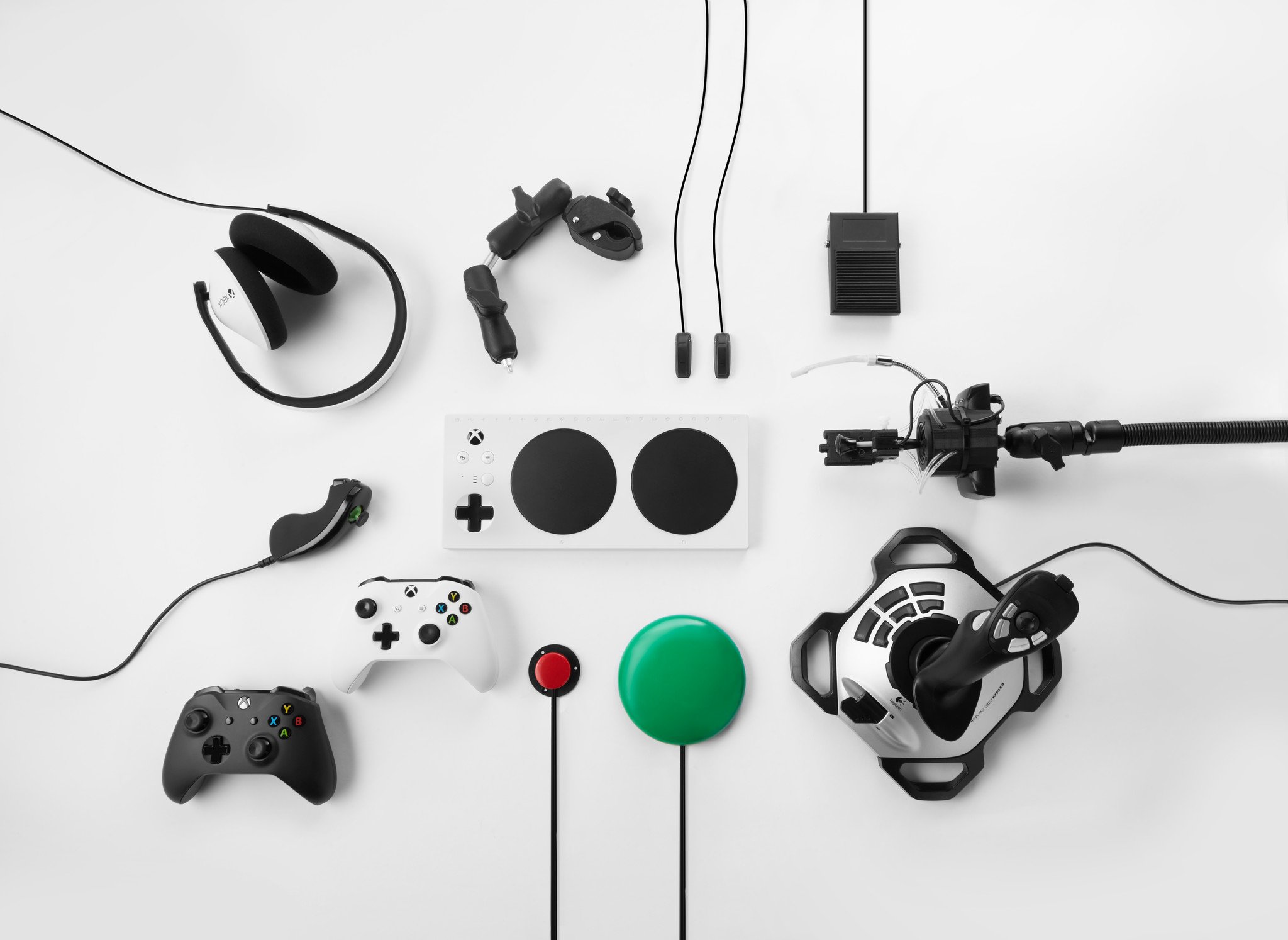
All the latest news, reviews, and guides for Windows and Xbox diehards.
You are now subscribed
Your newsletter sign-up was successful
AbleGamers is a charity that champions accessibility in gaming, helping those with unique needs get the tools and advice they need to enjoy gaming.
Recently, Microsoft unveiled the Xbox Adaptive Controller, which incorporates all sorts of 3.5mm-based buttons and switches to improve the gaming experience for those with accessibility needs.
AbleGamers COO Steven Spohn sat down with us to discuss the importance of accessibility in gaming, the partnership with Microsoft on the Xbox Adaptive Controller, and much more.
Jez Corden, Senior Editor, Windows Central: Thanks a ton for joining us! Could you give us a bit of background on yourself and AbleGamers for those who are unaware?
Steven Spohn, COO, AbleGamers: My name is Steven Spohn and I am the chief operating officer at AbleGamers. AbleGamers is a charity that seeks to remove the barriers for those who might be usually physically unable to play video games, providing them the technology to do so. We go into facilities, hospitals, or bring individuals to us at our headquarters in Washington D.C. to determine exactly what equipment someone might need in order to play video games, and we either create or buy the equipment they need to help them get gaming again.
We continued working with Microsoft for three years, in secret, on what the Xbox Adaptive Controller looked like, prototyping and basically assisting in any way we could.
My job as COO is to basically to run around and make sure everybody has what they need in order to do their jobs, so that we can do the many things we do at AbleGamers.
Jez: Microsoft recently revealed the Xbox Adaptive Controller, a big announcement which took people by surprise. People who have been watching Microsoft's moves recently will have seen how they have been doing a lot of work in this space recently, on a software level, introducing things like the Narrator and co-pilot on Xbox, but this is the first time they've branched out into a mass-produced peripheral for accessibility needs. Could you give us some background on how that partnership between yourselves and Xbox came about?
All the latest news, reviews, and guides for Windows and Xbox diehards.
Steven: Absolutely. We had started a controller the Adroit Switchblade with a company called Evil Controllers. With Evil, we had made this controller that you could connect 3.5mm switches, push buttons in order to play games just like you would on an Xbox controller. Through this device, we had made friends with Bryce Johnson at Xbox's accessibility lab. Bryce had known AbleGamers due to our work, and at the same time in a different area of the world, a person over at Xbox had made a prototype controller for people with disabilities. It had similar features to ours, and Microsoft was looking at making this controller for a mass market.
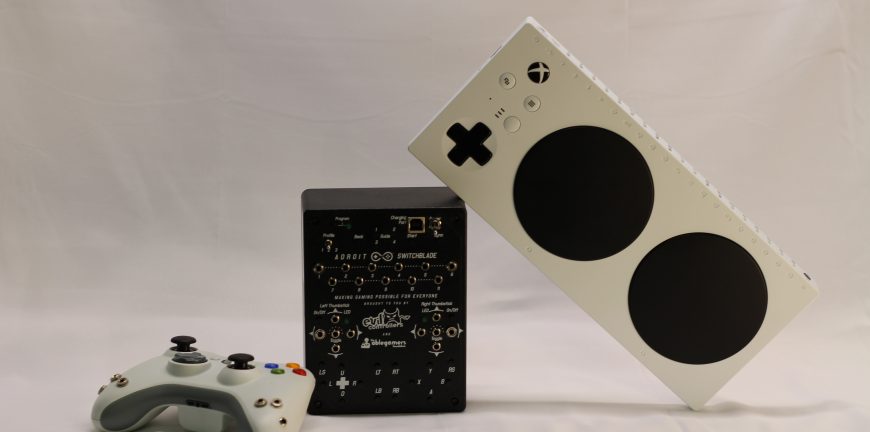
Bryce knew about our controller and how we had been giving them out to people with disabilities, and they wanted to bring us in for a consultation on this "fantastic new thing" that they were going to introduce to the world. We continued working with Microsoft for three years, in secret, on what the Xbox Adaptive Controller looked like, prototyping, and basically assisting in any way we could towards this large undertaking, building this controller for an underserved market.
Jez: You mentioned that it's underserved, do you think this controller will encourage other large platforms and tech companies, maybe like PlayStation, and Nintendo, to reconsider their commitment to accessibility needs in the future? Are there talks on-going with other platforms to bring this technology further afield?
Steven: Obviously, I have a lot of NDAs that I have to talk around here. While there are always things going on in the background at AbleGamers, out there in the world helping others, our founder Mark Barlet is constantly reaching out to the big companies to see how we can help. We're constantly fielding calls from makers who are interested in building new and amazing things and are looking for partnerships to do that.
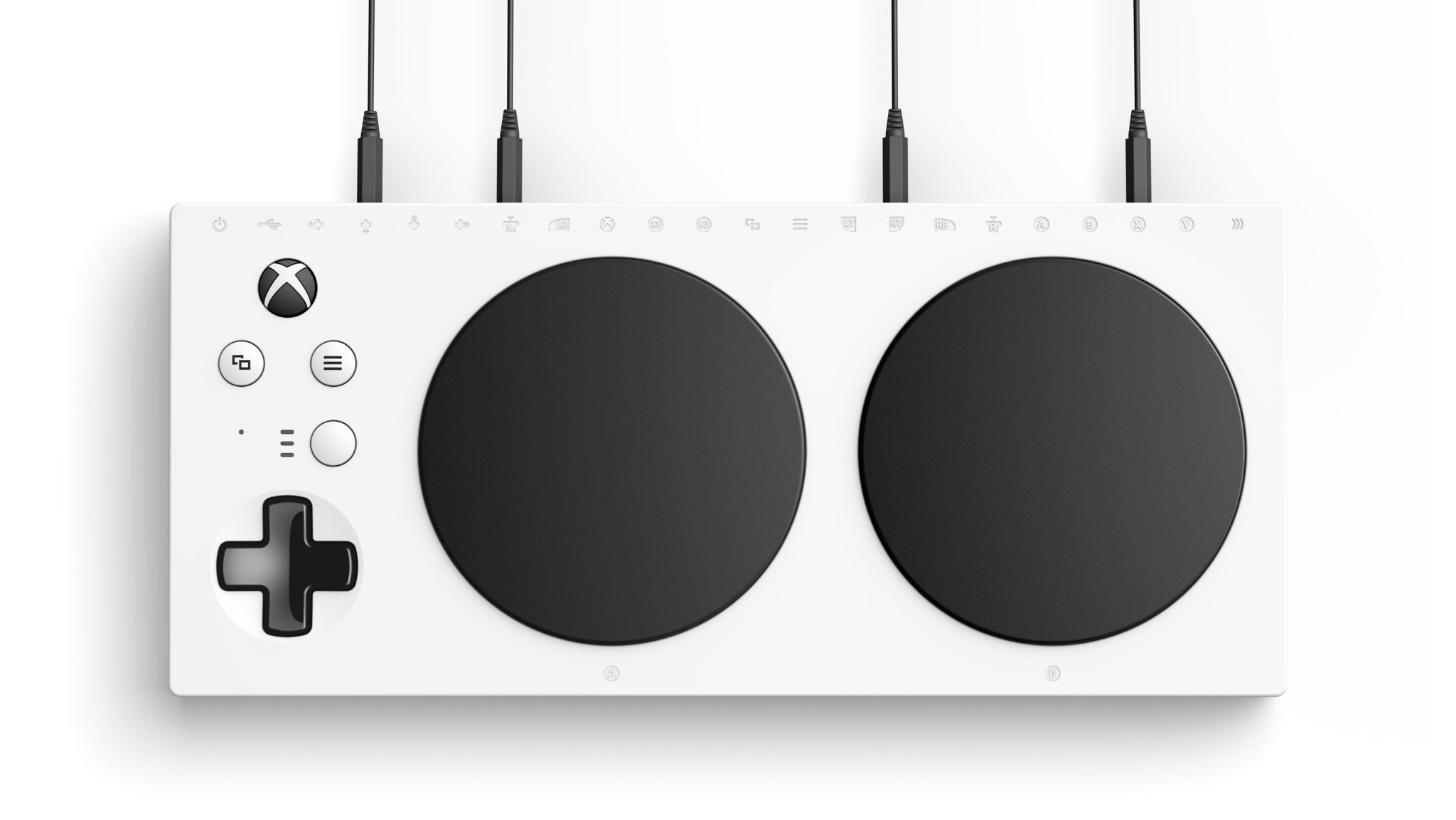
PlayStation has an amazing accessibility side. They worked hard on the console accessibility. They don't have a giant team like Xbox does working on accessibility, but we're always happy to work with them when they call upon us. Nintendo is a different nut to crack. Nintendo has some amazing virtual worlds, and we wish that their worlds were more accessible than they are. We're always happy to help, whenever they would like help.
Nintendo has some amazing virtual worlds, and we wish that their worlds were more accessible than they are.
Unfortunately, as of yet, they continue to do things like forced motion controls, as well as blocking third-party peripherals. I hope that eventually, Nintendo will come around, but right now, we're talking Xbox leading the pack with PlayStation. Hopefully, more will take cue from that, and decide that the accessibility community is worth supporting.
Jez: Speaking of motion controls and that sort of thing, what are some of the cardinal sins and game developers can make that prevent their games from being more accessible? Where can developers go to learn best practices?
Steven: What we did, in the very beginning of championing accessibility, AbleGamers put together a document called Includification. You can access it at Includification.com. At that website, you can check out all of the best practices for gaming, with accessibility in mind. It is a document that we consider practical for developers to include universally golden design for accessibility. What is appropriate for the accessibility community? What makes a game more accessible? What is also beneficial to your able-bodied gamers? They might just enjoy a setting, for example, such as subtitles. They're not just used by the deaf community, they're also used by people who might be hard of hearing, people who might have a baby they don't want to wake up, or people who don't have headphones at an airport. There are a lot of reasons why subtitles are great, and it's not just for the accessibility side of things.
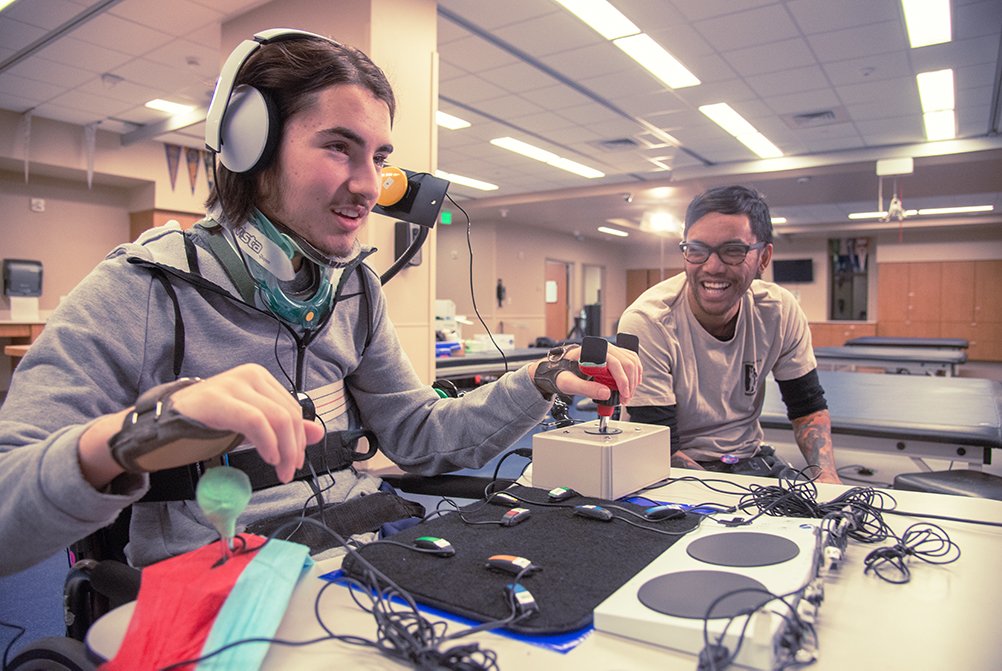
While accessibility is our primary concern, it's not everybody's. That's why we preach golden design. Universally good design. As far as the cardinal sins, it's things like not having re-mappable buttons. It's not having the ability to change the buttons on the controller for what you can reach and what's easy for you. It's not having colorblind settings, missing subtitles. Quick time events, if you have a lot of QTE elements in your game you're blocking a lot of people with disabilities. We're currently dealing with Detroit: Become Human, since they have lots and lots of forced QTEs, and there is no way to turn them off. Detroit is a story-based game, and sometimes you can't progress through the story if you can't hit a specific button in a few seconds. Maybe you don't have that physical ability.
There's always somebody out there that can use accessibility options, and if they can be implemented without hurting the art of the game, they should be.
We should always keep in mind that there's always somebody out there that can use accessibility options, and if they can be implemented without hurting the art of the game, they should be.
Jez: It's quite sobering to think about things that able-bodied gamers take for granted. Things like a QTE, which completely block progression if you can't hit a QTE fast enough.
Steven: It is, for people who might have cognitive disabilities or people who have disabilities whose muscles don't respond to their brain's commands as fast as they'd like them to. Having a failsafe mode in your game is so easy, I don't understand why more developers don't implement these sorts of things. If someone dies so many times on a boss fight, why don't developers have the option to reduce the difficulty on that boss? Obviously, after several tries, they might need some help.
There are a lot of good ways they can be implemented that shouldn't hurt the overall experience in any way.
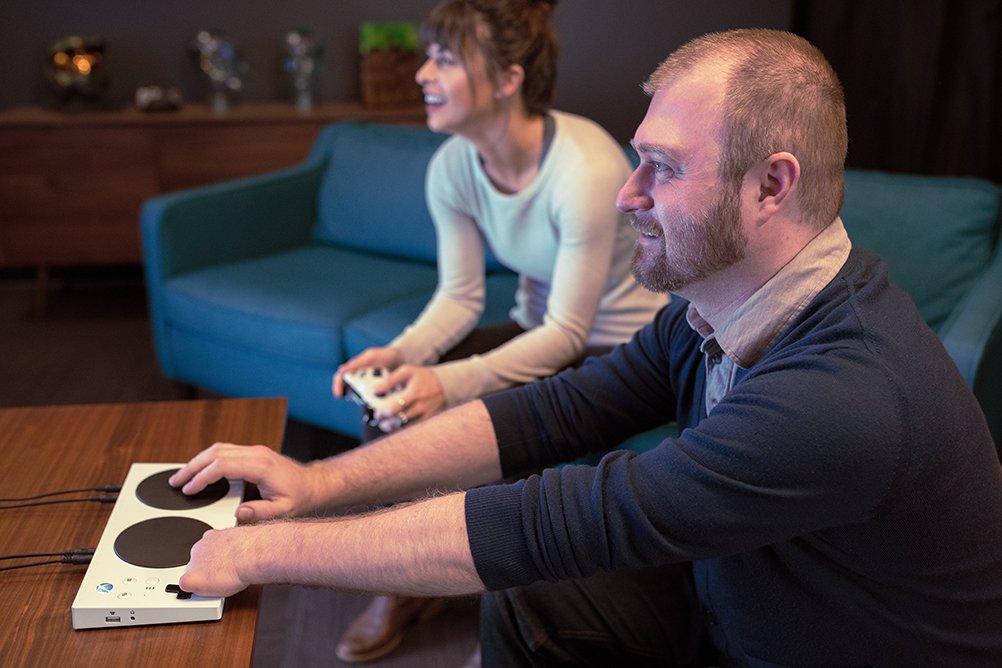
Jez: On that note, what are some of the ways that the Xbox Adaptive Controller can help alleviate some of these issues? If a game developer hasn't implemented their own accessibility features, for whatever reason. Can you tell us how the Xbox Adaptive Controller can circumvent any of the blocks present in the way a game has been made?
Steven: Number one, the "XAC" as we like to call it, the Xbox Adaptive Controller. It's more of a hub, than it is a controller, for a lot of people. So, some people will buy a XAC or an organization like AbleGamers will get a XAC for them, but they'll never actually touch the controller itself. The only thing it will do is allow 3.5mm switches to be plugged in and then positioned around the gamer like a keyboard. However, they're going to best be able to push the buttons. That's part of the design in of itself.
So, what we're talking about in that situation is, Xbox alleviated the problem of having to find adapters and controllers and hubs that would all play nice together in order to work on an Xbox and a Windows PC. I can take the switches that are on my wheelchair, and I can turn them from the thing that makes my wheelchair go forward, to the thing that lets me shoot the bad guys in a video game.
Xbox alleviated the problem of having to find adapters and controllers and hubs that would all play nice together.
Now, for those people who do have some physical ability, or are unable to activate a switch or push a button. It will allow them to do so in whatever fashion they desire. If you're somebody who has an amputation, or you may only have one fully functioning hand, or you have missing digits. Maybe you'll want to put one hand on the d-pad on the lower left corner, and you'll want to use your elbow or a foot pedal. What's great is, I'll be able to sit here for the next hour and a half and give you an example of different disabilities the controller can account for. That's what this was all about. Can we design a controller that is so flexible that it can help people no matter what their challenges are? Did we succeed? I think that we did very well, there's room for improvement, like with any controller. It's impossible to be able to help everybody straight away, but it goes a long way towards a great start.
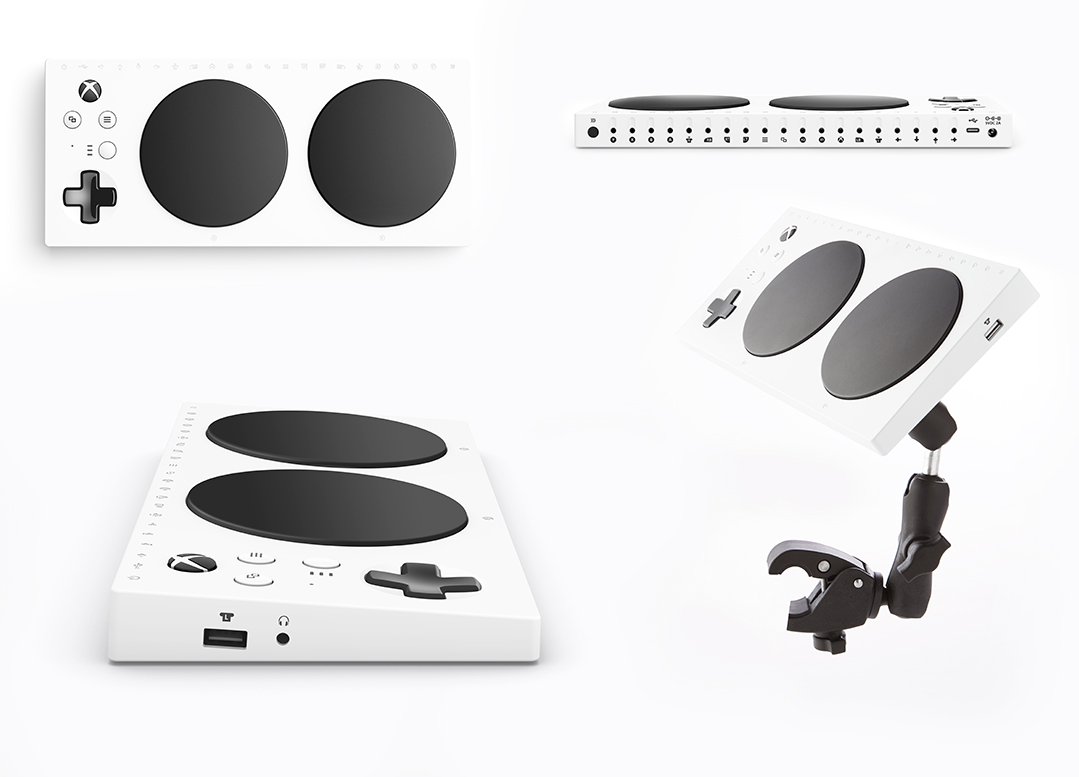
Jez: Say for example, someone out there is reading this interview and they might want to get themselves or a loved one set up with a XAC and a good set-up for them, but they don't know how to go about it, what is the current best way to get that sort of support?
Steven: If you're dealing with AbleGamers, all you have to do is go to AbleGamers.org/grant, and you can apply for our grant process. It takes a few months, you'll talk to our accessibility experts. They'll talk you through the process, listen to your accessibility challenges, find out the things you feel you need to improve your gaming set-up. We sit down and decide what the best course of action might be. If it's the Xbox Adaptive Controller, we'll grab that controller and give it to you as part of our grant system. There's no loaning at our charity, we give them away. We do this thanks to the wonderful donors that keep the charity running by giving their time and donations to make sure we can turn around and help the disabled community.
Jez: Speaking of donors and volunteers, if there are gamers out there who want to donate or volunteer their time, or get involved in helping you guys, where's the best place to do that? What sort of things can people do to help?
Steven: The best place to do that is to keep an eye on our social media. We're active on Twitter and Facebook, you can find us on Instagram too. You can check out what areas we're coming to, sometimes we need volunteers for expos for example. We'll have them come to the expo and help get the word out about AbleGamers, distributing information on the basic level, or helping direct people who need help to one of our accessibility experts.
If you're somebody who can't attend an expo but you still want to help out, we're always taking donations at AbleGamers.org/ways-to-give. There you can see how much money is spent on mission-based things, what our records are, we try to be one of the most transparent charities out there. We want people to know that their efforts and that their money is going to a place they can be proud of.
You can always check out AbleGamers.com too, we have all kinds of testimonials that showcase the people who have allowed us to tell their story. You can read all about who we are, what we do, why we do it, and who we've helped.
Jez: In closing, are there any messages you'd like to put out there about accessibility in the games industry?
Steven: I think that it's important to underscore how the industry has come around and really changed in the 15 years that AbleGamers has been pushing. With Xbox getting into things the last few years, it's good to see the industry coming around. Because, when we started, if you go to AbleGamers' YouTube channel, you can see a video called One Question. It's a video where we went to GDC and asked developers, in front of a camera one question. "Have you ever thought about designing for gamers with disabilities?" A few people said yes, a lot of people said no, and one guy laughed and walked away.
Back in the day, that was sort of what we dealt with. People either not understanding why would we do this, or just straight up laughing at us about it. Today, we deal with so many emails that we are months behind on getting to everybody who needs our help, because there's such an outpouring from people who could not only use our services but from other people who want to help too. It's amazing for us. It has made our founder Mark, come to tears many times in public forums because we are able to help these people.
We represent a group of people who would like to play video games, who want to be included, who want to be part of the industry.
It's not just about AbleGamers, it's about other charities who are partnering to try and help people with disabilities. The accessibility community has really gotten a push forward into the limelight as marketable people who have an income that are worth going after.
That was the hardest thing for us to get out there in the very beginning. We represent a group of people who would like to play video games, who want to be included, who want to be part of the industry. And we were left out for such a long time. And now, I believe that the industry juggernauts from Xbox and Microsoft and beyond are realizing that this group of people have an interest, they have money to spend, they have the desire to offer, and they have an intelligence that needs to be tapped into.
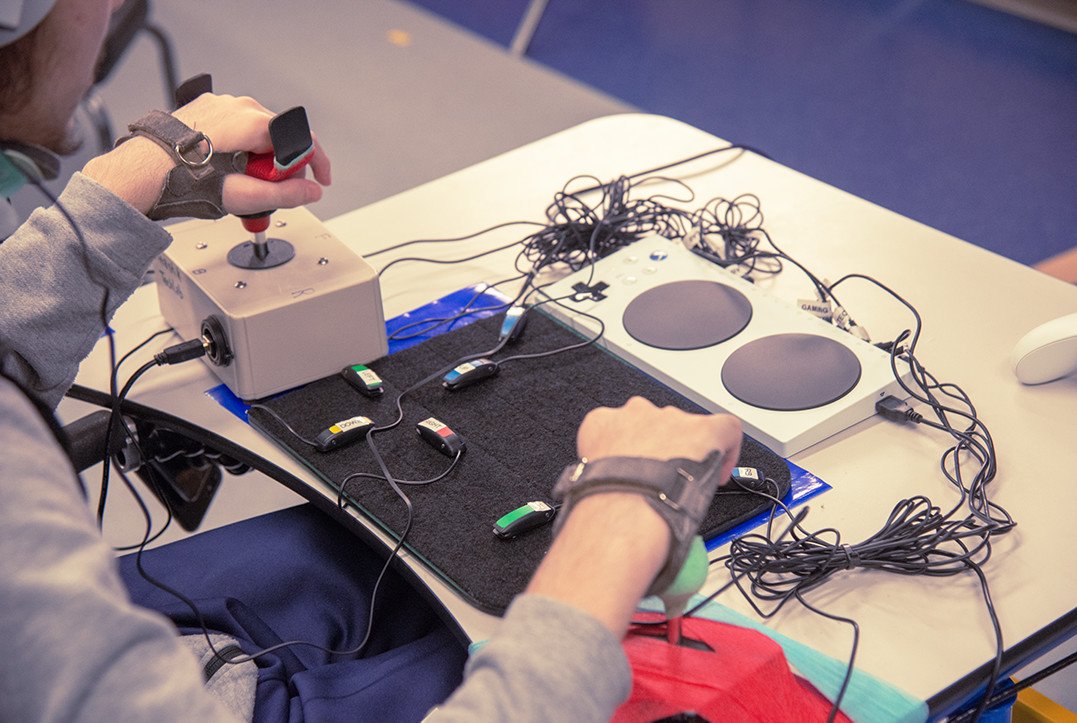
It's really great to see the industry come around, and this multi-billion juggernaut began to say "hey, you guys are valuable too, and we appreciate your input."
Thanks a ton to Steven Spohn for talking to us
AbleGamers' and their partner's perseverance in this area has been nothing short of incredible, and for a huge company like Microsoft to finally get on board really sends a signal to the other big tech companies out there to do more not just for gaming, but across the entire tech sphere.
I doubt Microsoft's Xbox Adaptive Controller will be the last mass-market accessibility product we see emerge from Redmond, which has become a front-runner in recent years championing the accessibility cause among the big tech giants. Hopefully, the Apples, Googles, and Amazons of the world will follow suit.
If you want to help out AbleGamers by volunteering your time or via donations, hit the link below.

Jez Corden is the Executive Editor at Windows Central, focusing primarily on all things Xbox and gaming. Jez is known for breaking exclusive news and analysis as relates to the Microsoft ecosystem — while being powered by tea. Follow on X.com/JezCorden and tune in to the XB2 Podcast, all about, you guessed it, Xbox!
